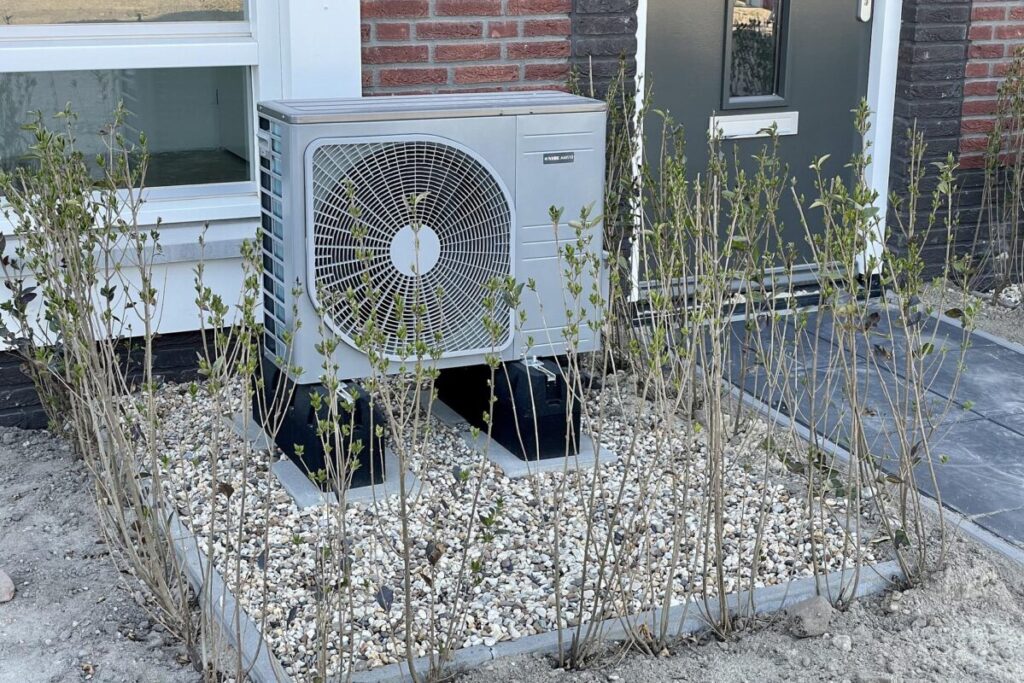Reports are circulating that the UK government will not include the 2035 gas boiler ban in its future homes standard (FHS).
It has been confirmed that, as well as leaving a ban on gas boilers out of the FHS, the sale of gas boilers will not be banned from 2035, nor will they have to be removed from homes.
An updated FHS is expected to be published soon—after some delay—and will dictate how UK new-build homes must be equipped to be ‘net zero ready’.
In 2023, shortly before a consultation on the FHS opened, the then-prime minister Rishi Sunak came under fire for pushing a planned ban on new gas boilers back to 2035. This would have meant that, from that year, homeowners and landlords who needed a new heating system would have to choose a low carbon option. Concurrently, under the FHS no properties would be built with gas boilers.
The current government’s decision to withdraw the ban should not come as a surprise: in June 2024, towards the end of the election campaign, Ed Miliband, who has gone on to become energy secretary of the UK, said the party would not “force” homes to “rip out” their gas boilers.
Indeed, after the launch of Labour’s flagship Great British Energy company at the end of July, prime minister Keir Starmer was asked what his plans were for heating. He said: “I’m not going to tell people what to do with their boilers. This is not about bearing down on individuals, imposing a disproportionate burden on them. I don’t think that’s the way that we take anybody through a transition.”
That being said, energy efficiency standards for newly built homes, delivered through government initiatives such as the Warm Homes Plan, will rule out gas boilers without a direct ban.
Jess Ralston, head of energy at the Energy and Climate Intelligence Unit (ECIU) said moving away from reliance on gas heating “surely must be a priority for a government that says it has energy security at the top of its agenda”.
A report by the Energy Crisis Commission (ECC), published in October 2024, suggested that due to the nation’s high dependence on gas for power generation and home heating, the UK was particularly exposed during the energy crisis that began in August 2021 and was the worst-hit.
Further analysis by the ECIU showed that currently homes with heat pumps use only half as much imported primary energy as those with gas boilers, owing to the efficiency boost heat pumps provide.
Ralston continued: “Every home we insulate and heat pump we install means we need less gas that will increasingly come from abroad as North Sea output continues its inevitable decline.
“Customers and industry knowing what long term, stable incentives and policies will be in place is essential to add confidence to the insulation and heating sectors which have been badly hit by boom and bust policies and unclear government direction in the past – so an ambitious and clear Warm Homes Plan can’t come too soon.”
Boiler upgrade scheme boosts heat pump uptake
The government’s Clean Power 2030 Action Plan (CP30) states a commitment to increase consumer energy independence throughout the rollout of technologies including solar panels and heat pumps. It states that, as part of the Warm Homes Plan, the government is considering the role of financing to support homeowners with the upfront cost of energy efficiency improvements, including heat pumps.
The Boiler Upgrade Scheme (BUS), effective since 2022, provides grants for the installation of home heat pumps. At the beginning of October, energy secretary Miliband permitted Ofgem, which oversees the scheme, to overallocate BUS vouchers by up to £50 million in this financial year, to a total of £200 million.
The government’s Autumn budget promised another uptick in BUS funding as part of a broader £3.4 billion commitment across the next three years towards domestic energy efficiency improvements and decarbonisation.
The Centre for Net Zero, an independent energy research institute founded by Octopus in 2021, published a report analysing Octopus Energy data to investigate the causal impact of air-source heat pumps.
The report’s key findings point to a significant reduction in energy demand through heat pump adoption, stating that the technology reduces household total energy use by 40% compared to gas boilers.






